Leaders Adopted a Strategic Agenda To Quell Juncker
Adelina Marini, July 4, 2014
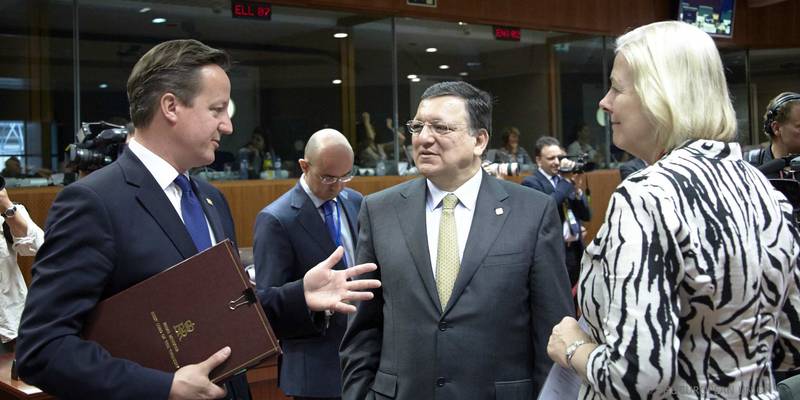 Many things have happened for the first time in the EU at the last European elections. For the first time a president of the European Commission was nominated (Jean-Claude Juncker) after a pan-European election campaign and severe disputes in the European Council. For the first time, a president of the European Parliament was re-elected for a second consecutive term (Martin Schulz). Responding to this explosion of supranational politics and democracy the leaders of the member states, for the first time, have outlined strategic guidelines for the development of the Union in the next five years (the upcoming term of the European Parliament and the Commission). In the past two years, the eurofederalist moods have gained significant speed in the EU together with plans for deepening of the European integration and supranational democracy. Everything started from the bold integrationist step in June 2012 when the European Council agreed to the establishment of a banking union and ordered the drawing of a read map for the deepening of the euro area integration.
Many things have happened for the first time in the EU at the last European elections. For the first time a president of the European Commission was nominated (Jean-Claude Juncker) after a pan-European election campaign and severe disputes in the European Council. For the first time, a president of the European Parliament was re-elected for a second consecutive term (Martin Schulz). Responding to this explosion of supranational politics and democracy the leaders of the member states, for the first time, have outlined strategic guidelines for the development of the Union in the next five years (the upcoming term of the European Parliament and the Commission). In the past two years, the eurofederalist moods have gained significant speed in the EU together with plans for deepening of the European integration and supranational democracy. Everything started from the bold integrationist step in June 2012 when the European Council agreed to the establishment of a banking union and ordered the drawing of a read map for the deepening of the euro area integration.
In defiance to the expectations, two years later, again in June, the heads of state or government have pulled the hand brake and demanded a pause. It is precisely through the so called "strategic agenda" for the next five years that they set a relatively clear framework how far can integrationist ambitions go and, most of all, who will decide in what direction the Union will move to. In this way, they have insured themselves against possible unsanctioned actions by Jean-Claude Juncker not only because he is quite an influential and independent European politician, but also because of the experience with Jose Manuel Barroso who deviated from the member states' instructions and drew a road map of his own (a blueprint) for the development of the euro area which is much more ambitious than the four presidents' report (of ECB, Eurogroup, European Commission, European Council).
The expectations for the strategic agenda before the summit on June 27th were very high mainly because of the UK peremptory demands for a serious reform of the Union. Against the backdrop of these expectations, the agenda is a disappointing and not an inspiring read as are the summit conclusions. Both documents are nothing more than a push of the 'pause' button for ideas about the future. The European Council President, Herman Van Rompuy, explained that the agenda had been unanimously agreed with the aim "to guide the action and planning of the EU institutions over that period. It is important that all institutions organise their work accordingly, and also that national parliaments are kept closely involved".
To disperse any doubts that the agenda is actually a muzzle for Jean-Claude Juncker, it will be debated during the next EU summit on July 16th with the new European Commission chief whose nomination is expected to be voted by the European Parliament a day earlier. The statement of outgoing Commission President Jose Manuel Barroso also shows that the strategic agenda pauses the big reforms and focuses on implementation and realisation of what has been done so far. When reporting the outcome of the summit before the newly constituted European Parliament in Strasbourg, Mr Barroso said that the European Council priorities clearly demonstrate an evolutionary process. They are founded on the important work and results that have been achieved in the past term when an "existential crisis" of the EU was avoided. Now, it is time to continue with consolidation and focusing on growth and employment.
The conclusions and the strategic agenda are not very much different from the drafts that leaked in the press before the summit. Several things are important to note in the adopted official documents: the 'Renzi' amendment, Cameron's paper ballerina and the institutional future.
The 'Renzi' amendment
The text that was proposed by the new Italy Prime Minister Matteo Renzi and approved by his peers in the European Council, is perceived in Italy and not only there as a huge victory over Angela Merkel and her policy of fiscal discipline. The philosophy behind the text is that in the past years attention was paid predominantly on the word "stability" from the Stability and Growth Pact and there were no efforts aimed at growth. Fiscal discipline is something good but it is not the only policy, moreover given the fact that it has left deep wounds in the European society. That is why the leaders 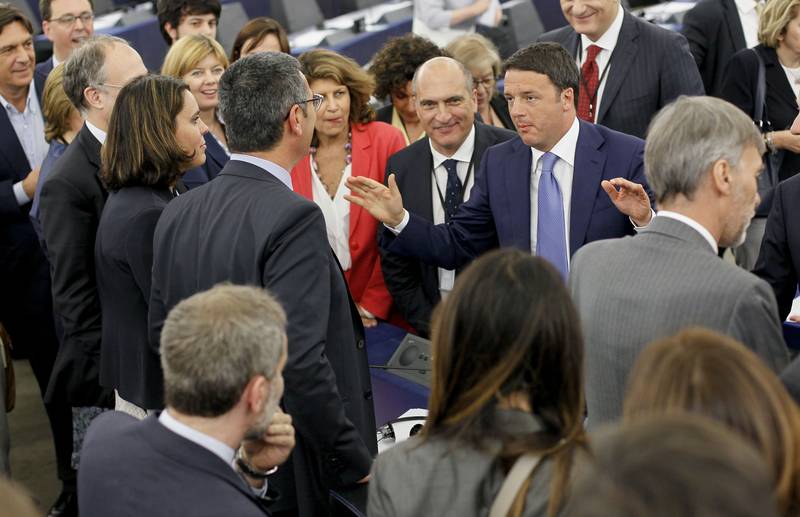 have agreed, upon Rome's insistence, to use all possibilities (best use) the existing fiscal frameworks offer to balance fiscal discipline with the need to boost growth.
have agreed, upon Rome's insistence, to use all possibilities (best use) the existing fiscal frameworks offer to balance fiscal discipline with the need to boost growth.
Structural reforms need to be aimed at supporting economic growth and improving fiscal sustainability. An "appropriate" assessment should be made of the fiscal measures and structural reforms by, in the same time, using in the best possible way the flexibility envisaged in the Stability and Growth Pact. The agreed text is open for interpretations, which was quite evident from the ways the two camps (austerians and spenders) reacted. German Chancellor Angela Merkel, perceived in Europe as the Austerity Queen, said after the summit on June 27th that the text in the conclusions very clearly shows that the Pact will continue to apply with all its possibilities for flexibility.
The Commission is the body that will decide how exactly to manoeuvre in the framework of the six-pack and the two-pack. However, there will be no changes. The possibilities are certain spending not to be taken into account when calculating the budget deficit if it is aimed at structural reforms that support growth. This will be decided individually for each member state. The leader of the EPP group in the European Parliament, Manfred Weber (Germany) sharply criticised Italy's premier Matteo Renzi during the presentation of the Italian rotating presidency's priorities pointing out that the European Commission has already once allowed "best use" of the possibilities for flexibility in the Stability and Growth Pact by giving France an extension of the deadline to correct its excessive budget deficit, but President Francois Hollande did nothing on the issue.
But to the Italian prime minster, the EU is much more than a conversation about economy and finance. His speech was spontaneous, based only on bullet points, inspiring and different than what we have seen so far in the European Parliament. He focused on Europe's civilisational legacy and announced his ambition in the next six months a process to begin to return Europe's grandeur. No one is talking about Dante or Archimedes, he said, seeking symbolism in the fact that Italy took over the presidency from Greece - the two successors of huge civilisational centres. Jose Manuel Barroso, however, reminded the young Italian prime minister (39) that 3 years ago there were strong voices in the EU demanding Greece to leave the euro area and in Italy new government was imposed.
In the EU strategic agenda for the next five years growth, employment and competitiveness are a priority number one. It is not at all a new priority and for many years it has been on the agenda of the Union. It focuses on completing the internal market for products and services and on completion of the digital market by 2015. The integration of the euro area will continue but with small steps, as it becomes clear from the document. However, nothing is mentioned in it about the future of the four president's road map. It is written quite generally that the Economic and Monetary Union has to become more solid and a sustainable factor of stability and growth. Future changes are hinted in terms of strengthening the eurozone governance and making the economic policy coordination stronger too.
For sure, this will be one of the biggest challenges in the new term because the leaders again state a desire to seek a balance between the deepening of the euro area and maintaining stable relations with the non-euro countries.
Cameron's paper ballerina
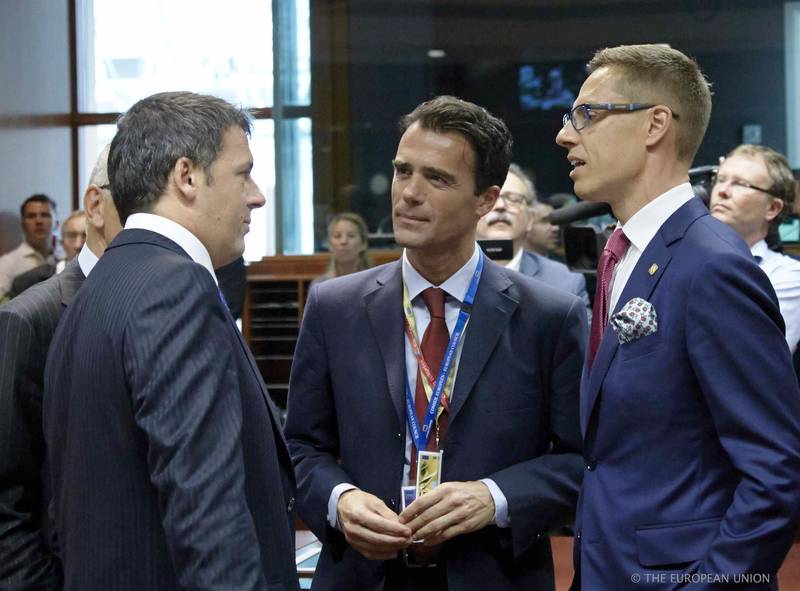 Against the backdrop of his massive campaign against the procedure for appointment of a European Commission chief and for EU reform, British Prime Minister David Cameron's success on European stage is reduced to a text in the conclusions, as euinside wrote in detail. It reflects that the United Kingdom's concerns regarding the Union's future development have been heard. "These concerns will need to be addressed", is written in the conclusions without mentioning a deadline or a format. One of the British prime minister's greatest demands in his campaign for reform was to remove from the treaties the phrase "toward ever closer union" because it is against the feelings UK has for the EU. That is why, the conclusions from the summit on Friday say that the concept of "ever closer union" allows for different paths of integration for the different countries.
Against the backdrop of his massive campaign against the procedure for appointment of a European Commission chief and for EU reform, British Prime Minister David Cameron's success on European stage is reduced to a text in the conclusions, as euinside wrote in detail. It reflects that the United Kingdom's concerns regarding the Union's future development have been heard. "These concerns will need to be addressed", is written in the conclusions without mentioning a deadline or a format. One of the British prime minister's greatest demands in his campaign for reform was to remove from the treaties the phrase "toward ever closer union" because it is against the feelings UK has for the EU. That is why, the conclusions from the summit on Friday say that the concept of "ever closer union" allows for different paths of integration for the different countries.
The institutional future
The point that mentions Britain's concerns includes also a commitment to reconsider the process of appointment of the European Commission chief in the future. Nothing specific is mentioned, apart from a commitment once the new European Commission is entirely formed and starts functioning the European Council to reconsider the process of appointment according to the Treaties. This is a clear hint that the leaders of the member states will do their utmost to avoid a repetition of the situation from the past months which endangered the integrity of the Union itself. But with Martin Schulz at the helm of the European Parliament such a decision will hardly pass easily.
EU in the future
In the conclusions and the Union's strategic agenda it impresses that serious attention is paid on the European internal and external security. The strategic agenda hints that in the new term the demand of some member states led by Britain will be realised to change the rules for free movement of workers within the Union. However, this will be accompanied by a policy to fight unemployment by unlocking the talent available in the EU and by attracting talented people from non-EU countries. The formulations in the agenda are quite vague and unspecific. Instead, the European Council conclusions are much more specific, especially in terms of Schengen and the protection of the Union's external borders.
In the coming five years, the Union will try to mobilise all its available tools to support the member states in protecting external borders. This includes modernising the integrated border management system and enhancing the Frontex operations especially for those countries that are under strong migration pressures along their external borders. Such a country is Italy for whose presidency this is a major priority. The incidents in the Mediterranean with boats packed with illegal migrants have become too frequent lately. It is envisaged in the long run to think about establishing a common European system of border guards who should help enhance control and surveillance along the EU's external borders.
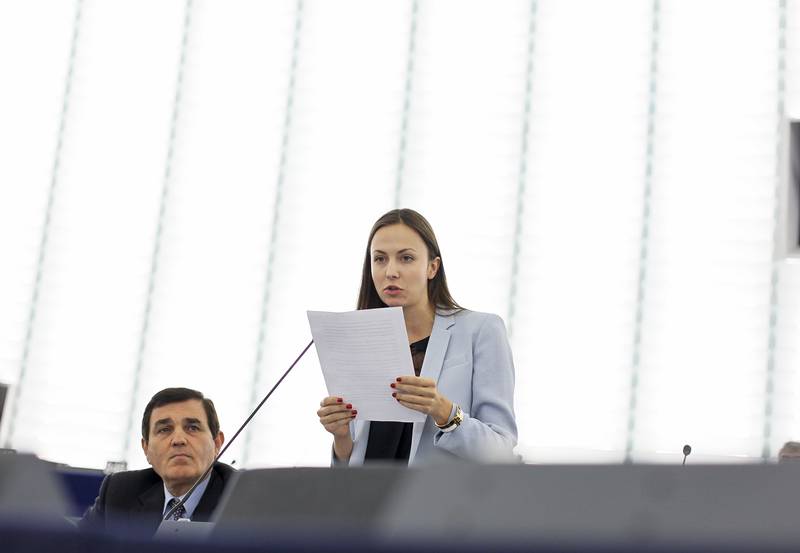 In an internal perspective, the leaders of the member states have agreed to continue the negotiations on establishing a common European prosecutor's office. They will also work to improve the coordination among the judiciaries of the member states when it comes to organised crime and corruption. Although it is underscored that this will be done taking into account the different legal systems and traditions of the member states, which means without any commons standards.
In an internal perspective, the leaders of the member states have agreed to continue the negotiations on establishing a common European prosecutor's office. They will also work to improve the coordination among the judiciaries of the member states when it comes to organised crime and corruption. Although it is underscored that this will be done taking into account the different legal systems and traditions of the member states, which means without any commons standards.
The big unpleasant surprise in the final version of the strategic vision of the member states' leaders is related to energy security. Against the backdrop of the ideas to create an energy union and collective bargaining of prices with third country suppliers, the leaders have demonstrated remarkable unity in disunity on the issue. It is pointed out that with the aim to enhance the Union's energy security investments will be made in relevant infrastructure which includes investments by third countries if all internal market competition rules are respected. This allows for too broad interpretations and unties the member states' hands to continue to circumvent the rules to pass projects like South Stream, for instance.
Energy security was one of the issues which was criticised in the European Parliament several times this week. The co-chair of the group of Greens Rebecca Harms (Germany) bluntly attacked the member states saying that "this contradiction" regarding Russia and the energy relations with it will lead to a tragic denouement. The new leader of the group of European Conservatives and Reformists (ECR) which in the new term is the third largest group, Syed Kamall (UK), also called for reduction of the energy dependency, especially from "regimes that do not share our values". During the hearing of the Italian prime minister in the European Parliament on July 2nd, Bulgarian EPP MEP Eva Paunova (GERB) asked how will the Italian presidency handle this issue given that Bulgaria has frozen under pressure by the European Commission the construction of the Bulgarian section of South Stream but Italy has not.
Mr Renzi's response was not very specific. In the summit conclusions and in the strategic agenda t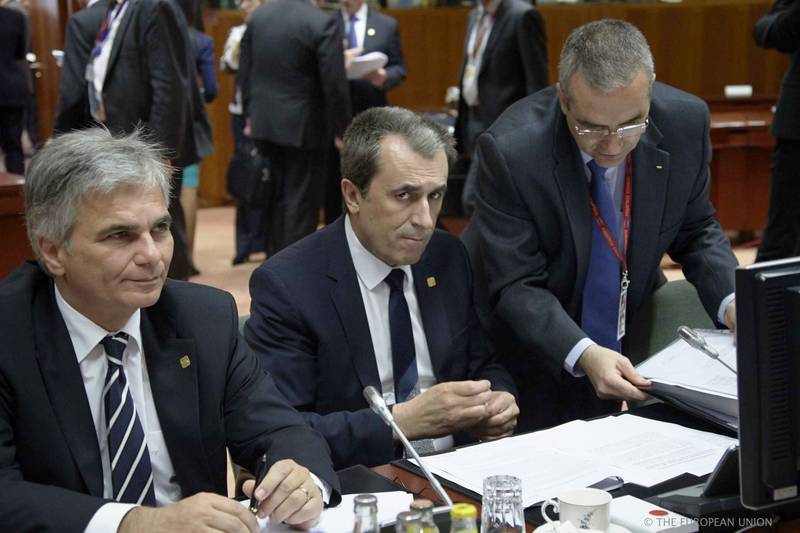 he answer is also too general. The strategic agenda mentions "toward an energy union" only in the title of the strategic guideline.
he answer is also too general. The strategic agenda mentions "toward an energy union" only in the title of the strategic guideline.
Against the backdrop of the member states' strategic visions about the future of the EU Jean-Claude Juncker is to face a very tough term because he will have to apply the European legislation a la carte - for some a more flexible application of the fiscal rules, for others more energy dependency, third would require a breaking off with the EU and a fourth group will hang in the vacuum between the euro- and non-euro continuum. He will have to work also with a difficult parliament where the pro-European and integrationist forces are a majority but the voice of the new MEPs and those from the anti-EU spectrum is much stronger. He will also have to seek a path toward the UK and its staying in the EU. Thus it seems that the new term will be much more challenging than the last one.
 Federica Mogherini | © Council of the EU
Federica Mogherini | © Council of the EU | © Council of the EU
| © Council of the EU Luis De Guindos | © Council of the EU
Luis De Guindos | © Council of the EU